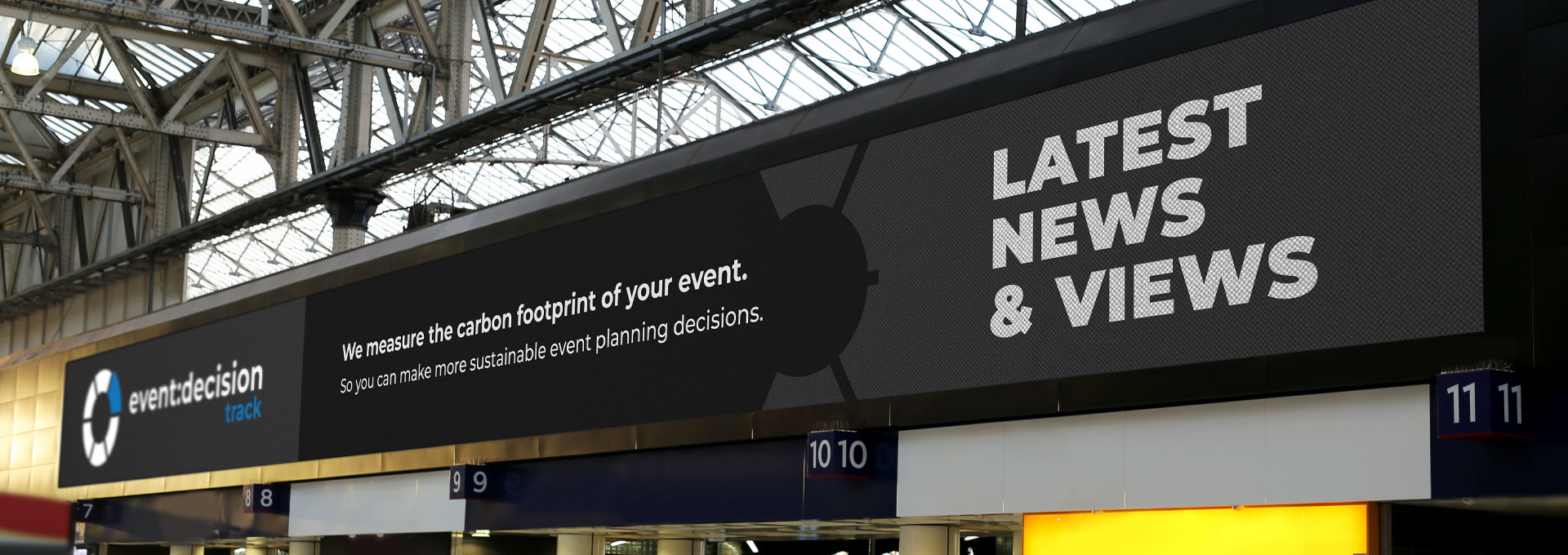New UK Sustainability Disclosure Standards: Why Do They Matter?
An Insight into the New Reporting Mandate and its Impact on the Events Industry
The UK government recently unveiled plans to create Sustainability Disclosure Standards, that mirror the EU’s Corporate Sustainability Reporting Directive (CSRD) legislation. This means that companies will be obliged to report on their Scope 3 (supply chain) emissions.
What is the EU’s CSRD and why does it matter?
Before understanding the UK’s decision, it’s essential to know the context. The EU’s CSRD is a legislation aiming to ensure that companies operating within the EU provide accurate, reliable, and consistent information about their sustainability practices. One key aspect of the CSRD is the focus on Scope 3 emissions.
Scope 3 emissions are indirect emissions resulting from a company’s operations, but which aren’t directly owned or controlled by them. In simpler terms, it includes emissions from a company’s supply chain – such as those produced by the emissions from the manufacture of any products they purchase or any emissions related to employee work-related travel.
UK’s Step towards Sustainability Disclosure Standards:
Post-Brexit, the UK is building its own set of standards which mirror the EU CSRD. This move aims at ensuring that businesses in the UK align with global sustainability reporting standards. In a nutshell, just like their EU counterparts, many UK-based companies will soon be obliged to report on their Scope 3 emissions.
Navigating the Jargon – A Quick Guide to Sustainability Acronyms
| Acronym | Stands for | Description |
|---|---|---|
| IFRS | International Financial Reporting Standards | These are international accounting standards set by the IFRS Foundation and the International Accounting Standards Board (IASB). They guide how specific types of transactions and other events should be reported in financial statements. |
| ISSB | International Sustainability Standards Board | An offshoot of the IFRS Foundation, the ISSB focuses on creating a global set of sustainability reporting standards, filling the need for clear, consistent, and comparable information on sustainability performance. |
| PIC | Public Interest Commitment | This term emphasises an organisation's commitment to prioritise the general public's welfare over the interests of its stakeholders. In a sustainability context, it can mean efforts undertaken by companies that benefit the environment and society, even if they don't directly boost profits. |
| SDS | Sustainability Disclosure Standards | Standards relating to the reporting of a company's sustainability practices. They often pertain to environmental, social, and governance (ESG) issues, ensuring transparency and uniformity in sustainability reporting. |
| TAC | Total Actual Cost | While not exclusive to sustainability, TAC is a comprehensive assessment of all costs associated with a project or an investment. For event professionals, this can involve calculating the total cost of making an event sustainable, including costs related to sustainable materials, technologies, and practices. |
| TCFD | ask Force on Climate-related Financial Disclosures | A market-driven initiative, aiming to increase and standardise companies' disclosure of climate-related financial risks and opportunities. The information allows investors, lenders, and insurance underwriters to make informed decisions. |
Implications for the Events Industry:
If you’re an event prof or planner, you might be wondering, “What does this mean for me?” Let’s break down the implications:
- Vendor and supplier selection: Eventprofs rely on a vast network of suppliers – from caterers to logistics and equipment rentals. With the new standards, event planners will need to consider the carbon footprint of their entire supply chain. This means that suppliers with transparent and better environmental practices will have a competitive edge.
- Venue selection: Venues could be a significant part of the Scope 3 emissions for an event. Venues that are sustainable, eco-friendly, or have green certifications may become more attractive options for events.
- Comprehensive reporting: For larger events, especially those by global corporations, the carbon footprint of the event may need to be reported. This includes everything – from the energy used to power the stage lights to the emissions from the vehicles transporting attendees to and from the event.
- Client expectations: Given that companies will be more accountable for their Scope 3 emissions, it is likely they will exert pressure on event planners to ensure that events are as sustainable as possible. This will lead to a rise in client expectations regarding sustainable practices in event planning.
- Opportunity for ‘Green’ marketing: Events that can shout about their low carbon footprint or sustainability measures can use it as a USP (unique selling proposition). This could be a differentiating factor in a competitive market.
Preparing for the shift:
For event professionals, the introduction of these standards doesn’t just represent a challenge but also an opportunity. Here are some steps to consider:
Measure: Consider employing tools or services that help in measuring the carbon footprint of your events. Regular reporting can provide insights into areas of improvement and help in making informed decisions.
Educate: Stay updated on the latest regulations and understand how they directly impact the events industry. This knowledge will ensure you remain compliant, but also ahead of the curve.
Collaborate: Start building relationships with suppliers who prioritise sustainability. They can provide insight, innovations, and best practices that can enhance the green credentials of your event.
Communicate: Engage with your clients and communicate the importance of sustainable practices, reinforcing trust and demonstrating your commitment to responsible event planning.
Sustainability is not a buzzword; it’s rapidly becoming an integral part of business operations across all industries. For event planners and professionals in the UK, understanding and adapting to the Sustainability Disclosure Standards is not just about compliance, but also about being relevant, competitive and profitable. The legislation may introduce new complexities but it also offers a chance for the events industry to be at the forefront of sustainable change, setting the bar high for corporate responsibility and green initiatives.
If you’re interested in finding out more about how our event carbon footprint calculator – track – could help measure and report on your event’s carbon footprint for SDS compliance and reporting requirements, get in touch. We’re the market-leading experts in sustainable reporting for events.








